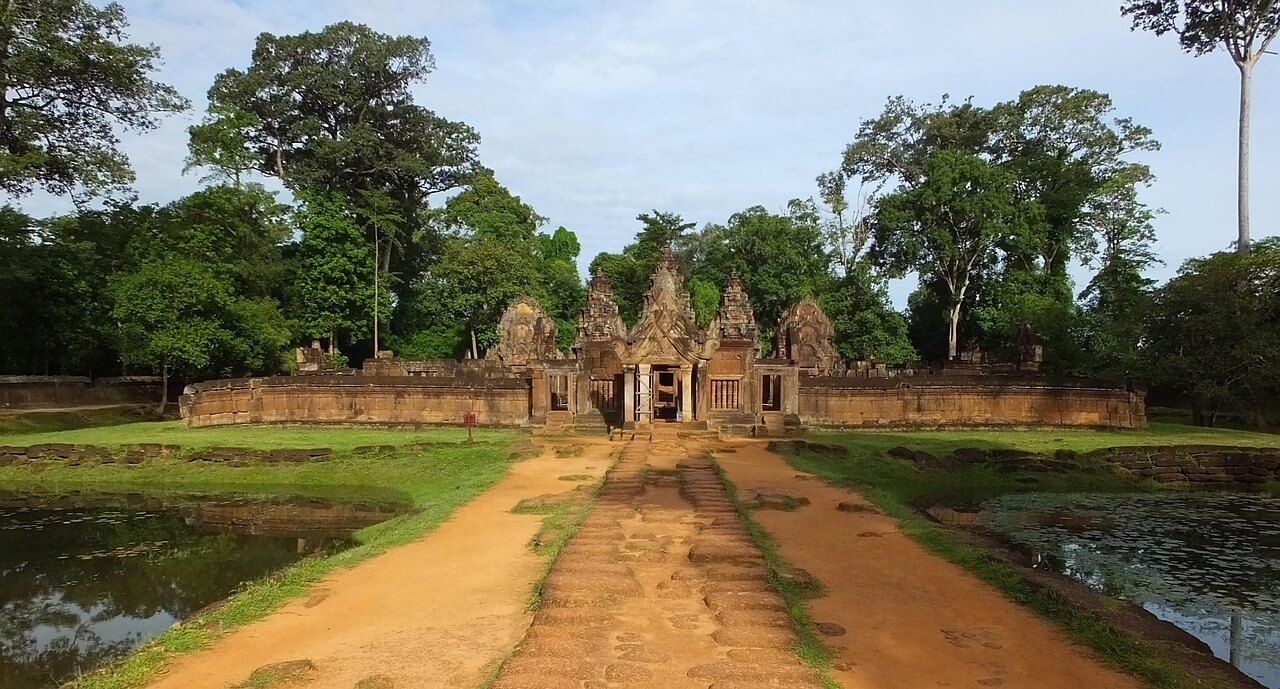Types of attractions in Angkor Wat
Angkor Wat, a UNESCO World Heritage site, is not just a temple; it's a testament to Cambodia's rich history and diverse culture. The city is adorned with historical monuments, natural wonders, and a plethora of cultural experiences that attract travelers from all corners of the globe. From towering temples to serene lakes, here’s a look at the various types of attractions you can explore in Angkor Wat.
HistoricalAngkor Wat is primarily known for its breathtaking historical sites. The main temple complex, built in the 12th century, showcases stunning Khmer architecture and intricate bas-reliefs. The nearby Bayon Temple, famous for its stone faces, and the ancient city of Angkor Thom are also must-visit sites.
NaturalThe landscape around Angkor Wat is equally captivating. The Tonle Sap Lake offers an opportunity for nature lovers to explore the floating villages and witness the unique ecosystem, while lush forests and picturesque rice paddies provide beautiful backdrops.
ReligiousAs a spiritual center, Angkor Wat hosts numerous religious ceremonies and festivals. Visitors can experience the local spirituality at the temple shrines, where monks offer blessings and rituals are performed daily.
CulturalCulture is alive in Angkor Wat through traditional dance performances and local markets. Visitors can attend Apsara dance shows, which depict ancient tales, or shop for handicrafts at local markets to take home a piece of Cambodia’s heritage.
MuseumsExplore the Angkor National Museum to learn more about the history and significance of the temples and the Khmer civilization. Interactive displays and artifacts from the past enhance the educational experience.
EntertainmentFor those looking for entertainment, there are numerous workshops and guided tours that offer immersive experiences, such as cooking classes and guided bike tours through the countryside, fostering a deeper connection with the local culture.
Must-see landmarks in Angkor Wat
The landmarks of Angkor Wat are markers of Cambodia's identity and history, drawing millions each year. Each site tells a story and offers visitors a glimpse into the glorious past of the Khmer Empire. Here are some of the must-see landmarks:
- Angkor Wat: This iconic temple is the largest religious monument in the world and a symbol of Cambodia.
- Bayon Temple: Known for its massive stone faces, Bayon reflects the artistic zenith of the Khmer Empire.
- Ta Prohm: Famous for the massive trees that envelop its ruins, this temple illustrates the power of nature reclaiming man-made structures.
- Angkor Thom: The ancient city surrounded by grand gates and intricate carvings, showcasing the grandeur of Khmer architecture.
- Banteay Srei: Often referred to as the 'Citadel of Women', it is famous for its detailed sandstone carvings.
- Preah Khan: A sprawling temple complex and an important historical site, offering a maze of roofs and cloisters.
Attractions for families and kids
Angkor Wat is a family-friendly destination brimming with activities that captivate children and adults alike. The blend of adventure, education, and cultural exposure makes it an ideal location for family trips. Here are some attractions that your kids will enjoy:
- Angkor Archaeological Park: Explore the magical temples on bicycles or by tuk-tuk, making for an exciting day out for the whole family.
- Phare, The Cambodian Circus: A vibrant mix of theater, music, and circus arts, this show entertains and tells stories of Cambodian culture.
- Cambodian Cultural Village: A theme park that showcases various cultural attractions, traditional dance performances, and exhibits about the nation’s history.
- Sra Srang Lake: Perfect for a picnic and relaxation, kids can enjoy the open space and scenic views.
- Botumvatey Park: A leisure park with green space for the children to run and play, it offers a peaceful break from temple visits.
- Adventure Tours: Various operators offer family-friendly trekking and kayak tours around Angkor to discover hidden gems together.
Summer and winter attractions
Angkor Wat transforms beautifully with the changing seasons, offering distinct experiences whether you visit in summer or winter. No matter when you choose to come, there’s no shortage of incredible attractions and activities to enjoy.
SummerSummer brings a vibrant landscape with lush greenery, perfect for outdoor explorations. The warm weather invites you to spend long days exploring the temple grounds. The mornings are ideal for temple visits before the heat sets in. Consider visiting the nearby Tonle Sap Lake for birdwatching and floating village tours. Additionally, summer festivals often occur, showcasing local culture through performances and markets.
WinterWinter offers cooler temperatures, making it comfortable for touring the temples. This season is great for photography, as the light is soft and diffused. Don't miss the Angkor Wat sunrise, where the temple glows with vibrant colors reflected in the surrounding moat. Winter is also the time for cultural events and celebrations, giving visitors a taste of local traditions and festivities.
Visitor information and tickets
Knowing essential visitor information can significantly enhance your trip to Angkor Wat, ensuring you make the most of your sightseeing experience. Here are some key details to help you plan your visit:
- Opening Hours: Most temples are open from 5:00 AM to 6:00 PM, but check for specific hour variations at popular sites.
- Ticket Prices: Entry fees are approximately $37 for a one-day pass, $62 for a three-day pass, and $72 for a week-long pass (prices may vary).
- Free Attractions: Some local markets and nearby parks are free to enter, offering a taste of local life.
- Booking Tours: It’s advisable to book guided tours in advance, especially for sunrise visits. Many operators offer online booking options.
- Local Tips: Bring plenty of water and wear comfortable shoes, as exploring the vast temple complex involves a lot of walking.
Photography and tourist info centers
Capturing the stunning beauty of Angkor Wat is a must for every traveler. The intricate details of the temples and the surrounding nature present fantastic photo opportunities. Finding local tourist information can further enhance your journey.
- Best Photo Spots: Early morning at the reflection pond of Angkor Wat and sunset at Bakheng Hill are top choices.
- Photography Rules: Always ask for permission before photographing locals; some may request a fee.
- Tourist Info Center: Tourist Info Center: +855 012 345 678, Address: Siem Reap, Cambodia, Working Hours: 8:00 AM - 5:00 PM daily.





















